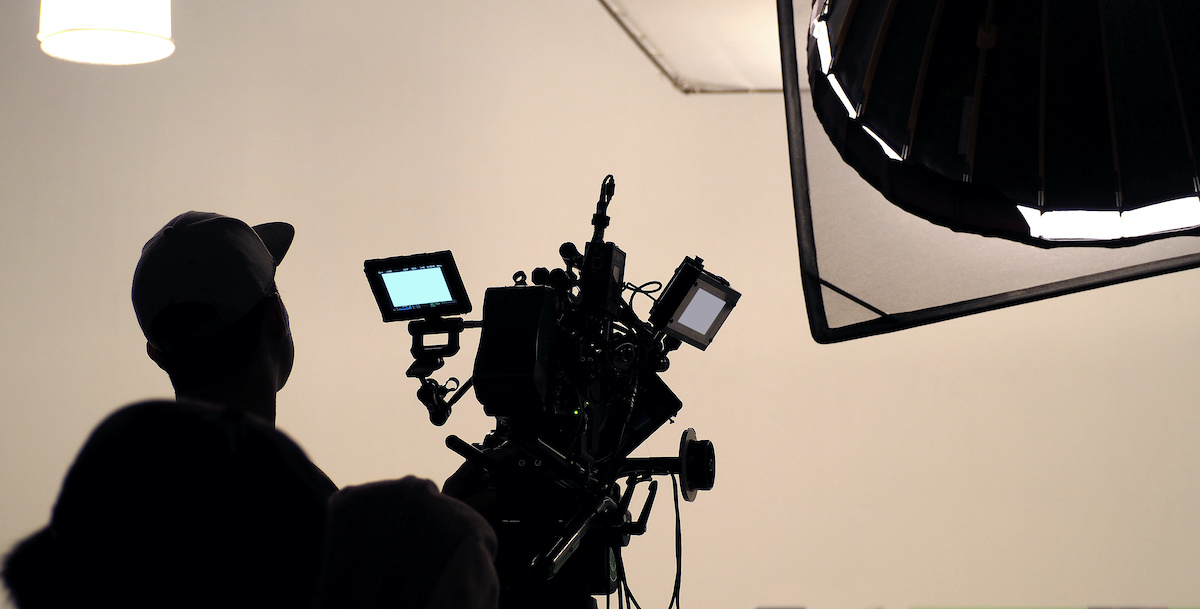Camera Operators, Television, Video, and Motion Picture Job Description
Camera Operators are visual storytellers who bring ideas to life by capturing high-quality footage for television, film, video, and live events. They are responsible for operating and maintaining camera equipment, executing complex shot compositions, and collaborating with production teams to achieve a director’s creative vision. Whether on a bustling set or a live broadcast, these professionals play a critical role in delivering compelling visuals that engage audiences.

Operate and manage a variety of cameras, including handheld, stationary, robotic, and aerial drones.
Execute dynamic camera movements such as pans, tilts, and tracking shots.
Collaborate closely with directors and cinematographers to align shots with the narrative vision.
Configure camera settings for optimal lighting, focus, and exposure based on environmental conditions.
Follow detailed shot lists and storyboards while adapting to real-time changes during production.
Work with lighting and sound teams to ensure visual and audio synchronization.
Troubleshoot and resolve technical issues with cameras and related equipment.
Oversee the assembly, calibration, and safe handling of cameras and accessories.
Operate specialized equipment such as dollies, jibs, gimbals, and steadicams for smooth, complex shots.
Capture live-action shots and events with precision and adaptability under varying conditions.
Review and log raw footage, providing feedback for post-production teams.
Maintain up-to-date knowledge of new technologies, techniques, and industry trends.
Ensure compliance with safety protocols, especially on challenging or hazardous sets.
Train and mentor junior operators or assistants on set.
Adapt to the specific demands of different production types, from fast-paced live TV to meticulously planned film shoots.
Skills and Expertise
Mastery of camera operation, including advanced settings for ISO, shutter speed, and white balance.
In-depth understanding of framing, composition, and the rule of thirds.
Expertise in lens selection and their impact on focal length and perspective.
Proficiency with lighting concepts, such as key, fill, and backlighting.
Familiarity with video formats, resolutions, and frame rates.
Physical stamina and hand-eye coordination for demanding shoots.
Ability to work effectively under tight deadlines and dynamic conditions.
Creative problem-solving and adaptability to overcome technical and environmental challenges.
Strong communication and teamwork skills to coordinate with multi-disciplinary teams.
Experience with video editing and file management software for basic post-production workflows.
Education: High school diploma required; bachelor’s degree in film, media production, or a related field preferred.
Experience: 1–3 years of hands-on experience in camera operation or related roles; internships are valuable.
Certification: Technical training in camera operation or cinematography is an asset.
Portfolio: A strong demo reel showcasing versatility in various projects is essential.
Remuneration
Entry-Level: $35,000–$50,000 annually or $15–$25 hourly.
Mid-Level: $50,000–$80,000 annually or $25–$40 hourly.
Senior/Highly Specialized: $80,000–$150,000 annually or $40–$75 hourly.
Freelance and per-project rates vary significantly based on scope and location.
Where to Find Opportunities
Production Companies: Film studios, television networks, advertising agencies.
Job Boards: Industry-specific sites like Mandy, Staff Me Up, and ProductionHUB.
Freelance Platforms: Upwork, Fiverr, and Behance.
Networking Events: Film festivals, media expos, and professional associations.
Social Media: Use platforms like LinkedIn, Instagram, or Vimeo to showcase your portfolio and connect with industry peers.
On Location: Outdoor shoots, live events, and remote areas.
In Studio: Controlled environments with extensive technical setups.
Dynamic Conditions: Irregular hours, tight deadlines, and physical demands.
Team-Oriented: Close collaboration with directors, producers, and crew.
Courses in film production, videography, and cinematography from accredited institutions.
Hands-on experience through internships, student projects, or assistant roles.
Familiarity with advanced equipment such as RED, ARRI, or Blackmagic cameras.
Move into specialized roles like Steadicam Operator or Drone Pilot.
Transition to creative leadership positions like Director of Photography (DP).
Explore opportunities in related fields, such as virtual reality (VR) and augmented reality (AR) production.
Build a reputation as a freelance camera operator or establish your own production company.
Starting a Career as a Camera Operator
Gain foundational experience through volunteering or assisting on student and independent film sets.
Create a portfolio that highlights your technical and creative expertise.
Stay updated on emerging technologies, such as 4K/8K cameras and AI-enhanced tools.
Join professional organizations like the International Cinematographers Guild (ICG) to network and access resources.